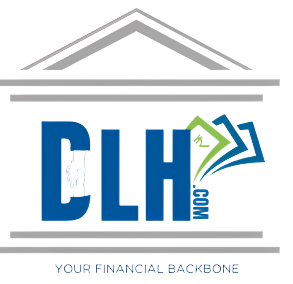
In the dynamic landscape of entrepreneurship, finding the right financing solution is often the key to unlocking doors for growth and success. For businesses, both small and large, a crucial aspect to understand is the business loan rate of interest, which plays a pivotal role in shaping financial strategies.
Welcome to our blog, where we embark on a journey to demystify the complexities surrounding business loan interest rates. Whether you’re an experienced entrepreneur exploring expansion possibilities or a fledgling startup navigating financial intricacies for the first time, understanding the nuances of interest rates is essential.
Throughout the upcoming content, we will explore the factors influencing business loan interest rates, the various types available, and strategies to secure the most favorable terms for your enterprise. Armed with knowledge, you’ll be better equipped to make informed decisions aligned with your business goals, ensuring that the financial foundation of your venture is as robust as your entrepreneurial spirit.
Join us as we navigate the world of business loans, unraveling the intricacies of interest rates and empowering you to make sound financial decisions for the sustained growth and prosperity of your business.
What is business loan Interest rate?
Lenders charge an interest rate for borrowing money, or investors earn returns for lending funds. It typically takes the form of a percentage and represents the cost of utilizing capital or the compensation for providing funds.
Interest rates are applicable to various financial instruments such as loans, mortgages, savings accounts, and investments. They encapsulate factors like risk, the time value of money, and inflation expectations inherent in financial transactions.
For borrowers, a higher interest rate implies greater expenses for accessing borrowed funds. Conversely, for lenders or investors, a higher interest rate indicates a higher return on their investment.
Interest rates can either be fixed, maintaining a constant value throughout the financial product’s term, or variable, subject to changes based on market conditions or other influences. Central banks and monetary authorities often establish benchmark interest rates, influencing the overall interest rate climate within an economy.
On what factors business loan interest rate demands?
Determining the interest rates for business loans involves a thorough examination of several critical factors. Insight into these elements is essential for businesses aiming to optimize their loan terms. Here are key considerations that significantly impact business loan interest rates:
- Business Income:
Lenders evaluate the financial health of businesses by analyzing their income. A higher business income indicates a greater capacity for loan repayment, lowering the credit risk for lenders. Consequently, businesses with strong incomes are more likely to secure loans at lower interest rates. - Years of Business Existence:
The duration of a business’s operation is a key factor in interest rate determination. Lenders generally favor businesses with a substantial operational history, offering more favorable rates to those with a proven track record. Typically, a business should have been in operation for at least one year to be considered for loan approval. - Nature of Collateral/Security:
Lenders carefully look at the things or assets that people give as security when they apply for a loan. If these things are worth a lot of money, there’s a better chance that the loan will be approved with lower interest rates. So, businesses need to think about what they offer as security and how much it’s worth to get better loan terms. - Type of Loan Facility:
Different business loans come with varying interest rates. Lenders provide a range of facilities such as working capital, invoice discounting, cash credit, term loans, overdrafts, and more. Understanding the specific needs of the business and selecting an appropriate loan type can impact the interest rates offered. - Credit Scores:
Credit scores are pivotal for lenders, especially in the case of unsecured business loans. Businesses with higher credit scores are perceived as more creditworthy, resulting in lower interest rates. Maintaining a positive credit score not only enhances loan eligibility but also reduces credit risk for lenders, leading to more favorable loan terms.
Businesses, aiming for loans, must assess factors, improving eligibility for lower interest rates. Addressing considerations helps secure favorable financing terms.
Interest rate offered by different banks on the business loan
- Private sector bank
| BANKS | INTEREST RATE / PER ANNUM |
| HDFC | MINIMUM 10.00, MAXIMUM 22.50 |
| ICICI | MINIMUM 12.50, MAXIMUM 17.00 |
| AXIS | MINIMUM 10.75, MAXIMUM 17.75 |
| KOTAK MAHINDRA BANK | MINIMUM 16.00, MAXIMUM 26.00 |
| YES BANK | MINIMUM 10.99, MAXIMUM 20.00 |
| IDFC | MINIMUM 19.00, MAXIMUM 22.00 |
| BANDHAN BANK | MINIMUM 13.00, MAXIMUM 21.00 |
| NAINITAL BANK | MINIMUM 11.30, MAXIMUM 14.30 |
| CSB BANK | MINIMUM 11.95, MAXIMUM 26.00 |
| CITY UNION BANK | MINIMUM 12.00, MAXIMUM 17.75 |
| DCB BANK | MINIMUM 9.95, MAXIMUM 14.00 |
| DHANLAXMI BANK | MINIMUM 12.00, MAXIMUM 15.00 |
| FEDERAL BANK | MINIMUM 8.09, MAXIMUM 14.25 |
| IDBI BANK | MINIMUM 8.05, MAXIMUM 18.00 |
| INDUSIND BANK | MINIMUM 13.00, MAXIMUM 22.00 |
| JAMMU & KASHMIR BANK | MINIMUM 8.08, MAXIMUM 14.10 |
| KARNATAKA BANK | MINIMUM 10.00, MAXIMUM 21.00 |
| KARUR VYSYA BANK | MINIMUM 2.60, MAXIMUM 11.82 |
| NAINITAL BANK | MINIMUM 11.30, MAXIMUM 14.40 |
| RBL BANK | MINIMUM 10.65, MAXIMUM 16.25 |
| SOUTH INDIAN BANK | MINIMUM 12.55, MAXIMUM 16.55 |
| TAMILNAD MERCANTILE BANK | MINIMUM 10.80, MAXIMUM 12.20 |
- Public sector bank
| BANKS | INTEREST RATE |
| BANK OF BARODA | MINIMUM 10.00, MAXIMUM 15.00 |
| BANK OF INDIA | MINIMUM 9.70, MAXIMUM 13.00 |
| BANK OF MAHARASHTRA | MINIMUM 12.00, MAXIMUM 17.00 |
| CANARA BANK | MINIMUM 9.25, MAXIMUM 18.00 |
| CENTRAL BANK OF INDIA | MINIMUM 8.55, MAXIMUM 12.80 |
| INDIAN BANK | MINIMUM 8.20, MAXIMUM 14.55 |
| INDIAN OVERSEAS BANK | MINIMUM 11.00, MAXIMUM 15.00 |
| PUNJAB AND SIND BANK | MINIMUM 10.55, MAXIMUM 13.05 |
| PUNJAB NATIONAL BANK | MINIMUM 8.15, MAXIMUM 15.00 |
| STATE BANK OF INDIA | MINIMUM 9.00, MAXIMUM 17.00 |
| UCO BANK | MINIMUM 8.85, MAXIMUM 13.55 |
| UNION BANK OF INDIA | MINIMUM 8.00, MAXIMUM 15.00 |
Tips to obtain a low-interest business loan
- Strategic Financial Management: Maintain a healthy credit score by consistently paying bills and EMIs on time, avoiding defaults, and minimizing late payments. A high credit score enhances your eligibility for lower interest rates.
- Collateral and Security Offer: Increase your chances of securing a low-interest business loan by offering collateral or security. This provides assurance to the lender and mitigates risk, resulting in more favorable interest rates.
- Extensive Lender Comparison: Explore business loan offers from a diverse range of lenders. By comparing options, you can identify lenders with competitive interest rates and terms, allowing you to choose the most cost-effective financing solution.
- Tenure and Loan Amount Optimization: Opt for a shorter loan tenure and a lower loan amount whenever possible. This not only reduces the overall cost of borrowing but also increases the likelihood of securing a lower interest rate.
- Cash Flow Optimization: Ensure healthy cash flows within your business. Lenders often consider a company’s cash flow when determining interest rates. A positive cash flow demonstrates financial stability and lowers perceived risk.
- Proactive Risk Mitigation: Demonstrate proactive risk management by addressing potential concerns that lenders may have. By assuring them of your financial stability and commitment to repayment, you can negotiate for lower interest rates.
Carefully apply measures to increase chances of obtaining a cheaper business loan, contributing to your company’s financial well-being and development. Moreover if you have any questions or comments about our loans or anything else, please contact us by visiting divineloanhub.com.

